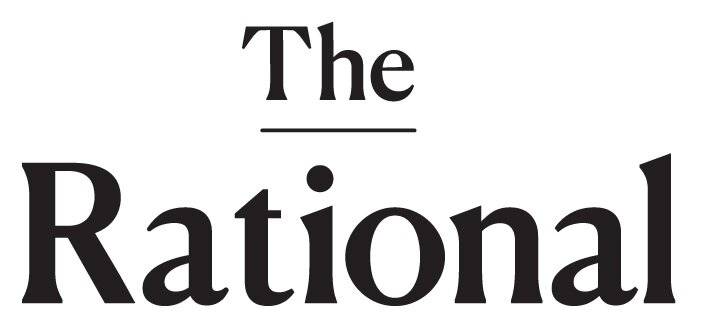Is Freelance Writing Even Sustainable Anymore?
As editorial layoffs continue, finding space in this market becomes even more competitive.
Credit:
Andre Moura @andregrafias
It’s 2019, and there’s a growing movement into the freelancing workspace within the writing community. In fact, according to the latest Bureau of Labor Statistics data, 67% of writers were self-employed in 2016. Many look to freelancing for the freedom it offers — not only from the confinement of a traditional “9 to 5” job, but also in the ability to write on topics they care about.
However, not all writers branch out by choice. Recently, companies have laid off hundreds of writers (most recently at Buzzfeed, Verizon Media Group, and Gannett), forcing writers to suddenly find work elsewhere. Many of these staff slashes are notably due to the industry-wide “pivot to video,” from publications like Buzzfeed and Mashable. Even after making such a pivot, other companies, like Mic and Vox Media, have made further cuts to their staff in an about-face pivot from video.
The freelance world is unstable terrain. Oftentimes, freelancers are forced to chase after their rightfully earned paycheck for days, weeks, and even months after submitting work. They don’t often get the necessary support to advocate for themselves beyond sending hundreds of follow-up emails. However, some local governments and communities have stepped in, providing services that help protect freelancers. For example, New York City passed the Freelance Isn’t Free Act in May 2017, which mandates that employers pay freelance workers 30 days after the work is completed. Supportive coalitions have sprung up, too, like the Freelancers Union, which offers free membership for all freelancers, including writers. The union includes health benefits, several local freelance locations, and advocacy groups.
These protections are a step in the right direction to solidify freelancing as a sustainable career. Still, the big worry remains regarding freelancers’ abilities to make a steady enough income. Writer Jaya Saxena says she’s been “paid as little as nothing and as much as $1.66 a word… but I've [also] been paid as much as $2,245 for a piece.” Similarly, Nina Bahadur tweeted that in 2018, she was paid between $75 to just under $2,000 each per piece. On average, most freelancers get commissions worth a few hundred dollars, raking in $10,000 or less annually. This translates roughly to about $15 per hour, but with relatively few billable hours. According to Content Wonk’s 2018 Freelance Writers’ Survey, most American freelancers (44% of those surveyed in this case) earn between $15 and $45 per hour. Freelance writers earning less than $15 or more than $45 constituted 28% each.
Figuring out whether freelancing can be financially stable takes multiple factors into consideration. Rent, groceries, taxes, and other necessary living costs need to be covered, and switching to freelance can also lead to the loss of the benefits — like health care — that typically come with a full-time staff position. Many freelance writers credit their partners’ access to healthcare as a huge advantage. Without that kind of support, the chances of sustaining a freelancing career can decrease immensely due to the cost of out-of-pocket healthcare.
The freelance industry is also affected by the shifting relationship between the media, government, and public. For starters, publications know that freelancers who get paid per word/piece and who don’t receive employer-sponsored healthcare offer a cheaper way to produce content. In fact, Vox Media, who laid off 50 employees in 2018, has begun to ramp up their hiring. But instead of rebuilding their in-house editorial team, they’re looking largely for freelancers to continue their work, an especially interesting move considering Vox Media employees unionized early last year, as have other publications such as Mic, New York Magazine, and Vice. Unionized newsrooms means demands for fair pay, treatment, and benefits. Choosing to hire freelancers instead of union members allows companies to avoid meeting those demands. So while Vox’s current hiring spree provides more freelancing job opportunities, it also allows the publication to get away with paying their workers less.
The government also has its responsibilities to help freelance workers. Today’s political climate has driven newsrooms into unprecedented story turnaround. Each news cycle happens so fast that reporters barely have a chance to catch their breath before moving onto the next thing, let alone working to maintain editorial integrity — we see stories churned out in record time, with more “UPDATED” citations being added hours after articles have gone live. As a result, competition between writers is high, especially in tandem with the untimely axing of editorial teams.
The recent administration has contributed to the dangerous climate for journalists, driving a wedge between the public and the media. Given the President's defiant position on "fake news" and his declaration of the media as an “enemy of the people,” many readers have built a strong distrust in the media. Even further, in June of last year, a gunman opened fire on the Capital Gazette newsroom, killing five. Creating a tumultuous and threatening work environment is the opposite of what our government should be doing.
Instead, local governments can enact more laws like the Freelance Isn’t Free Act, providing immediate protection for freelancers and their pay. On a wider scale, “tax laws [could] be amended to reflect the growing number of 1099 workers,” notes Saxena. The IRS currently sees freelancers as self-employed business owners. The self-employed business owners, (including freelance writers) have to pay a self-employment tax, which is just like it sounds — a tax for not having an employer. This is pretty harmful to those trying to make a living through freelancing, especially when the business itself is already difficult to fund and maintain.
As for how we, the public, can make positive changes, it’s about supporting both staff and freelance journalists. This means advocating for writers when they need jobs and when they’re struggling. It means fighting for unions, fair pay, and health care. When asked about how she would change the opinion of freelance work being so unstable, Saxena was quick to counter: “I don't think it's about changing the opinion of freelancing,” she says. “The opinion is correct--it's very unstable! We need to actually change the conditions of freelancing to make it more stable and viable. I want a world in which choosing to be freelance is truly a matter of choice, where people better suited to it can make a decent living and have health care, and people who want staff jobs can also find plentiful, steady staff jobs.”







